
by Steve | Mar 8, 2021 | Home Page Hero Slider, Magazine, Magazine Articles, March-April 2021
 By Walter Fenton –
By Walter Fenton –
The Transitional Leadership Council, a 17 member team of theologically conservative Methodists, has released information on the formation of the new Global Methodist Church. The council said the new church will officially come into existence when a United Methodist General Conference adopts the implementing legislation for the Protocol for Reconciliation and Grace through Separation. Alternatively, if it becomes apparent that the leading bishops, centrists, and progressives who covenanted to support the Protocol no longer do so, then the council will consider bringing the new church into existence without delay.
“The primary mission of the Global Methodist Church will be to make disciples of Jesus Christ who worship passionately, love extravagantly, and witness boldly,” said the Rev. Keith Boyette, who serves as chairman of the Transitional Leadership Council. “Over the past year the council members, and hundreds of people who have informed their work, have faithfully and thoughtfully arrived at this point.”
With the announcement of the new church the council authorized the release of a comprehensive and detailed website (globalmethodist.org). It includes the new church’s mission statement, vision, information about its name and logo, a frequently asked questions section, and downloadable versions of the church’s Transitional Book of Doctrines and Discipline in English, French, Korean, Portuguese, and Spanish. The website clearly notes that “the Global Methodist Church is in formation” and will not officially launch until the Protocol is approved.
“It was a great honor to participate in such exhilarating work,” said the Rev. Philippe Adjobi, a member of the Transitional Leadership Council, a district superintendent in the Cote d’Ivoire Annual Conference and a General Conference delegate. “I believe the Global Methodist Church will fulfill the expectations and aspirations of local churches throughout Africa. They will appreciate focusing on what is essential: testifying to Jesus Christ for the transformation of the world.”
Adjobi and the names of the other 16 members of the council – men and women from Africa, Eurasia, the Philippines, and the United States – are listed on the Global Methodist Church’s website. The list includes laity, clergy, and bishops who believe an amicable and orderly separation is the best way forward.
The special General Conference in 2019 proved to be as contentious and divisive as many people anticipated when a Traditional Plan reaffirming the UM Church’s sexual ethics, teachings on marriage, and ordination standards was approved. Progressive and centrist United Methodists in the U.S. denounced the General Conference’s actions and resolved to defy the global body vested with the sole power to speak authoritatively for the UM Church.
Within weeks, small groups of centrist, progressive, and traditionalist UM Church leaders, quietly and often haltingly began having conversations about plans for dividing the denomination. A group convened by the late Bishop John Yambasu of Sierre Leone and guided by the world renown mediator Kenneth Feinberg hammered out the Protocol and its implementing legislation. The 16 member team included leading UM bishops and representatives from the major advocacy groups representing centrists, progressives, and conservatives.
The Protocol team released its plan in early January 2020 and it quickly gained the sometimes hopeful and sometimes grudging support of United Methodists around the world. It appeared headed for likely passage at the denomination’s May 2020 General Conference.
In light of the Protocol, a group of theologically conservative UM Church leaders met in Atlanta in March 2020. The group included several traditionalist bishops, evangelical advocacy group leaders, and other clergy and laity who identified as theologically conservative. During their meeting, they nominated the members of the Transitional Leadership Council, assigning them the task of forming the new church.
“I am convinced the Global Methodist Church will be a vibrant, vital expression of Methodism in terms of its teachings and ethics,” said Dr. Bob Hayes, a Transitional Leadership Council member and Bishop in Residence at The Woodlands United Methodist Church in The Woodlands, Texas. “As a fourth generation Methodist I am excited by a fresh wind of the Holy Spirit where I see God doing a new thing! God is creating a church rooted in Scripture and the love of Jesus, and he is calling us to participate with him.”
At the time of the Transitional Leadership Council’s formation, no one knew the Covid-19 pandemic would result in the postponement of the UM Church’s 2020 General Conference. Despite the postponement of an in-person General Conference, the Transitional Leadership Council has been meeting almost weekly since March 2020. As is evident in its Transitional Book of Doctrines and Discipline, the council has approved the Global Methodist Church’s core confessions of faith, hammered out a transitional governing structure, and adopted the new church’s name and logo. The council has emphasized fidelity to the historic teaching of the Christian faith, and a desire to be a truly global church.
“I believe a good number of ethnic congregations will want to align with the Global Methodist Church,” said the Rev. Kevin Ryoo, a council member and an elder in the Dakotas Annual Conference. “They long for a church which honors the Bible, stays within the traditional mission of Methodism, and keeps local church ministry as a first priority. I know Korean Methodist congregations have a strong passion for evangelism and mission.”
Boyette, who is the president of the Wesleyan Covenant Association, acknowledged that while the association has played a role in preparing for the new church, many other traditionalist leaders have been critical in the formation of the Global Methodist Church.
“Traditionalists do not march in lock-step,” said Dr. Leah Hidde Gregory, a Transitional Leadership Council member and a district superintendent in the Central Texas Annual Conference. “Some traditionalists have been wary of the WCA, thinking it was moving too fast and others believing it was moving too slow. It took a few meetings before I realized there were only three people from the WCA leadership on our council. It became obvious to me that the group who nominated us wanted to make sure all people who regard themselves as traditionalist, orthodox, conservative, or evangelical were represented on the Transitional Leadership Council.”
In the “Frequently Asked Questions” section of its website the new church states, “Women, like men, will be called to serve in the Global Methodist Church and will be entitled to serve at all levels.” The section also says, “As a truly global church the denomination will be ethnically and racially diverse and will insist on the equal treatment of all the church’s members.”
“I believe Methodism is on the cusp of another Great Awakening,” said Transitional Leadership Council member Cara Nicklas, an attorney and General Conference delegate from the Oklahoma Annual Conference. “The Global Methodist Church is the vehicle by which that will happen because we value a connectional, global church with doctrine and discipline that is not guided by our U.S. culture but is simply focused on bringing people into a deep and intimate relationship with our Lord and Savior Jesus Christ.”
Walter Fenton is Vice President for Strategic Engagement for the Wesleyan Covenant Association and an elder in the Greater New Jersey Annual Conference.
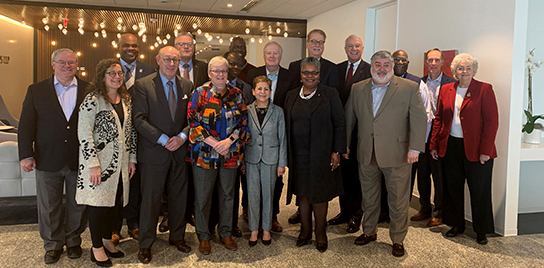
by Steve | Mar 8, 2021 | Home Page Hero Slider, Magazine, Magazine Articles, March-April 2021

Members of a diverse group of bishops and other United Methodist leaders after reaching agreement on a proposal that would maintain The United Methodist Church but allow traditionalist congregations to separate into a new denomination. Photo courtesy of the Mediation Team.
By Thomas Lambrecht –
On February 25, the Commission on the General Conference announced that the 2020 General Conference – postponed once until August 29, 2021 – has now been postponed again until August 29, 2022. On the same day, the Council of Bishops announced it is calling a special session of the General Conference to meet virtually on May 8, 2021, to address technical issues that would allow the church to continue operating until the full General Conference can meet.
Notably, the Protocol for Reconciliation and Grace through Separation is not currently on the agenda for the special virtual General Conference.
No Regular General Conference. The Commission made the expected decision that an in-person General Conference could not take place in 2021, due to the travel restrictions in place now and expected to remain in place for the foreseeable future. Travel by delegates from outside the U.S. – fully 40 percent – to attend General Conference will likely still be impossible throughout 2021.
A Technology Study Team met during January to consider the possibility of a virtual General Conference. After extensive research and conversations with representatives of the church outside the U.S., the team concluded that a virtual General Conference, even with a limited agenda, would not be possible because of issues related to time zones, reliable electricity and Internet service, travel restrictions, and the integrity of the voting process.
As one who promoted the viability of a virtual General Conference, reading the report of the Technology Study Team convinced me that it is not feasible with current technology during a pandemic. This decision is disappointing, and the situation is frustrating, but it was the right call.
The Special Session. The Council of Bishops proposes that the special session gather on May 8 for an extremely limited agenda. The first task would be to secure a quorum, in order for the special session to take action. In light of the above considerations, it is unlikely that more than a scattered few delegates from Africa or the Philippines could attend. It must be acknowledged that, despite the high value on universal participation by all delegates, this special session will mainly include U.S. and European delegates who have access to Internet technology. But this situation is unavoidable in trying to get some of the church’s administrative processes unstuck.
With the knowledge that many delegates could not participate in a deliberative General Conference, the Council of Bishops has limited the proposed agenda to twelve administrative items that it considers non-controversial. The virtual General Conference will also act to allow the voting to be done by paper ballots that would be compiled by mail and the results announced on July 13, 2021. The paper ballots would not allow any amendments to the above legislation. Delegates would simply vote yes or no. Although not all delegates could participate in the virtual General Conference, all 862 delegates could cast paper ballots on the proposed legislation.
What about the Protocol? Although the proposed agenda for the virtual special session of General Conference does not include the Protocol, the decision about separation requires urgent resolution. Many of the other decisions, such as the budget and the number of bishops to elect, depend upon how many churches and annual conferences will remain in the UM Church after separation. It would be better to make the decision regarding separation before needing to make all these other decisions. It is in no one’s best interest to prolong this decision. Deciding now would enable the UM Church and the new traditionalist denomination to begin moving ahead in ministry as we come out of the pandemic. Many are ready to act, and deciding now would open the door for churches that are ready to go in a new direction.
It is in the best interest of centrists and progressives that General Conference make a decision now regarding the Protocol. Once traditionalists start moving to a new denomination, it would allow centrists and progressives free rein to change the church’s position on marriage, sexual ethics, and other isssues at the 2022 General Conference.
The need to offer amendments to the Protocol is not essential. The mediation team negotiated the major terms of the Protocol based on compromise and give-and-take. Changing any of those major terms could jeopardize the carefully balanced agreement and throw the adoption of the Protocol into question. It would be better to adopt the Protocol as negotiated, with the implementation dates extended by one year, which would be possible under the plan of the special virtual session. The Council of Bishops could amend the call for the special session to include the Protocol. If not, the delegates – with a two-thirds vote – could add the Protocol to the agenda of items to be dealt with by the special session.
Hope for the Future. Meanwhile, the Protocol mediation team needs to provide leadership in continuing its support and promotion of the Protocol. The Reconciling Ministries Network and the Western Jurisdiction and its progressive bishops have recently reiterated their support for the Protocol, as has a broad group of traditionalists. With support across the spectrum, including from bishops, the Protocol can move forward as a positive way to amicably resolve the decades-long conflict in the UM Church. Freed from conflict, both groups could wholeheartedly pursue ministry according to their mission and convictions.
Thomas Lambrecht is a United Methodist clergyperson and the vice president of Good News.
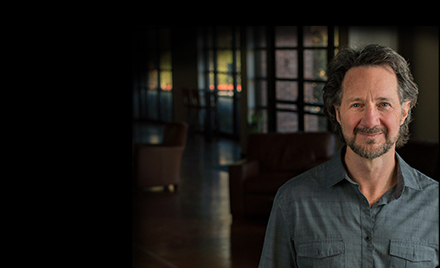
by Steve | Mar 8, 2021 | Home Page Hero Slider, Magazine, Magazine Articles, March-April 2021
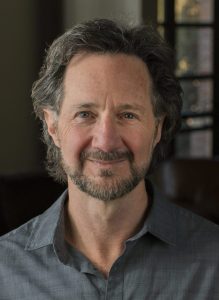
Rob Renfroe
rrenfroe@goodnewsmag.org
As you are probably aware, the Commission on the General Conference announced on February 26 that the 2020 General Conference has now been postponed until August 29, 2022. This is a second postponement, General Conference having previously been moved from May 2020 to August 2021, due to concerns regarding the COVID crisis.
At the same time, the Council of Bishops announced it is calling a special session of the General Conference to meet virtually on May 8, 2021, to consider a variety of issues, the most important of which is how we will conduct business as a church when we cannot meet in person.
United Methodist pastor and blogger Andy Bryan summed it up very well in a recent tweet: “I am a part of a denomination that needs to set a meeting to suspend our rules so that we can create new rules to dictate what we are supposed to do when we cannot meet to create rules.”
If that sounds confusing, it’s because it is confusing. And it’s confusing because we are a confused denomination. For fifty years many of our leaders – pastors and bishops – have confused the acceptance of nonbiblical theologies with openness. They have confused affirming behaviors contrary to the teaching of Scripture with giving grace. And they have wrongly confused the views of a postmodern, progressive culture with the values of God’s Kingdom.
Confused leadership creates confused organizations that create confusing plans that create more confusion – and more distrust. That’s why the Good News office (and the offices of all the orthodox renewal groups) has been flooded with the concerns of faithful UM pastors and laypersons who believe the additional postponement is nothing more than a ploy, the goal of which is to discourage traditional members to the point they will leave the church. And many, after being disappointed by the Council of Bishops over and over again in the past, are thinking this may now be the time to do just that.
We should give the General Commission on the General Conference some grace. The pandemic put them in a very difficult place. The Commission had to determine if a truly fair and representative General Conference could take place virtually, knowing that in many countries delegates might not have the same access to technology that we in the United States enjoy. And we should be grateful that the Commission announced that the postponed Conference will be scheduled in 2022, rather than leaving us without any idea when the Protocol of Reconciliation and Grace through Separation will be considered.
Still, we are in a confusing place. Unless some clarity is given regarding our future, the results are predictable. Members will leave. Churches will exit (some already have as a result of General Conference 2019 and the original postponement of GC 2020). In states where the laws favor the local church over the denomination (and there are many) lawsuits will be filed by some congregations to leave with their property. The Wesleyan Covenant Association’s recent announcement of a new orthodox Wesleyan denomination, the Global Methodist Church, will increase the number of churches who are willing to depart the UM Church, even if they must fight their way out through the courts. And, of course, apportionments will decline, further exacerbating the denomination’s already precarious financial situation.
Without clarity about a way forward, the Wesleyan movement, whether in the form of a traditional expression of the Christian faith or in the remaining post-separation UM Church, will be harmed numerically, financially, and spiritually. In the midst of a global pandemic, as racial issues continue to divide our country, at the same time that more people in the U.S. are walking away from the faith than ever before – in other words, when those around us desperately need the hope of the Gospel and the witness of the church – a lack of leadership and clarity about our future will weaken our ability to minister to a hurting and needy world.
What needs to be done? Denominational leaders need to state clearly and explicitly that they support the Protocol and that they will do all they can to secure its ratification.
Some already have. The progressive Western Jurisdiction did so last fall. A broad group of traditional leaders, including bishops, pastors, and laypersons, many not associated with conservative renewal groups, reiterated its support of the Protocol in February before the postponement was announced. And Reconciling Ministries reaffirmed its commitment to the Protocol shortly after the delay was made public. Conservative and progressive leaders have spoken out. It’s time for others to do the same.
1. The team that negotiated and proposed the Protocol should make a joint statement that they are still committed to its passage with no amendments. The entire church was grateful that an agreement was reached by progressive, centrist, and traditional leaders that makes an amicable parting possible. Since that time, other proposals have been put forth, but none by a team that is theologically diverse and representative of the whole church. We need those who performed the arduous work of creating the Protocol to remind us why it is still the best and most fair way forward. We need them to reaffirm that in spite of other proposed options, they are still fully in favor of the Protocol.
2. Centrist leaders need to reaffirm their unequivocal commitment to the Protocol. Centrists on the Protocol team played a valuable role in its creation. But since that time, we have not heard much, if anything, from them as to why it is still the way forward. Progressive and traditional leaders have reiterated their support of the Protocol. It is imperative that those who claim to be at the center of the church do so as well.
3. The Council of Bishops must lead the way and be clear that it is committed to the Protocol, as proposed. Nothing would be more helpful in alleviating the distrust and the angst so many of our members are feeling as a strong statement by the COB that it endorses and will work for the passage of the Protocol. If we must wait until 2022 to vote on the Protocol, the Council could be the “calm and assuring presence” our bishops have talked about so often by assuring the church that they will use all of their influence to secure the Protocol’s ratification.
4. If the Council of Bishops fails to make a statement, traditional bishops should declare they are committed to an orthodox Wesleyan expression and that they will support the new Global Methodist Church. Whereas most progressive bishops have been very open in the past about their support of The One Church Plan and other more radical solutions to our current crisis, traditional bishops have been less willing to indicate which plan they support. They have believed that rather than being an advocate for a particular path forward, it was better and more in keeping with their role as a bishop to the whole church to explain clearly the various plans. That way their pastors and members could make an informed decision for themselves about the solution they thought best. We can appreciate the balanced approach of our traditional bishops. But it is now time to move from education to direction. Again, what we need is clarity – what do the traditional bishops believe, what will they do, and how will they lead if the Council of Bishops fails to do so.
There is talk of traditional delegates boycotting the special General Conference to signify their dissatisfaction that the Protocol was not included on the agenda. If successful, they could prevent a quorum for the Conference being reached and no business could be conducted. I don’t want that to happen. It will not serve the church well and it will only make traditionalists look small and petty. But it may be the route some will take if they believe support for the Protocol is waning.
There are also discussions of delegates joining together to add the Protocol to the agenda and voting on its passage. This would require two-thirds of the delegates agreeing to suspend the rules of the Conference. Am I in favor of this path? Yes. There is no reason that an up or down vote could not be held on the Protocol. The Conference could vote to act on it as is with no amendments. The Protocol has been widely distributed; we have had more than ample time to consider it; and if paper ballots work for matters to be addressed in the special Conference called for May of this year, there is no case to be made that they cannot be used for the Protocol. Leaders of all the major factions within the church have previously supported it and we all expected it to be passed this August. We don’t need hours of debate, quibbling over details, or dealing with everyone’s better idea. We can and should vote on the Protocol on May 8.
If the bishops and the members of the Commission on General Conference believe we should wait until 2022, then they must provide what the church needs. Clarity about their commitment to the Protocol. An assurance that if we wait until 2022, the Protocol will be passed. Reason to believe that even if we disagree on important issues, we are not confused about the way forward.

by Steve | Mar 5, 2021 | In the News, Perspective E-Newsletter
 By Thomas Lambrecht –
By Thomas Lambrecht –
Sometimes in life, there is no substitute for a fresh start. That is what the newly announced Global Methodist Church (GMC) offers.
Texas experienced near-record freezing temperatures a couple weeks ago. As a native of Wisconsin, I’m used to the cold, but the plants in our yard were not chosen according to their ability to survive freezing temperatures. Most of them look pretty bedraggled right now. I spent last weekend clearing out and discarding all the dead leaves, stems, and plants so they have room to grow back from their roots. It would do no good to leave all that dead plant material on the ground, since those plants will not reenergize the existing leaves and stems. They will only survive by growing again from the roots.
That is how many traditionalists perceive The United Methodist Church. Parts of the church have lost their ability to function the way they were intended. Rather than fighting to reenergize those dead leaves and stems, it will be more fruitful to clear away the debris and start fresh, allowing Methodism to grow up once again from its historic roots.
The newly announced Global Methodist Church represents an effort to reconstitute Methodism in a new way for the 21st century, while drawing upon our biblical and Wesleyan roots. This project reminds me of the words of Jesus to the church in Sardis: “I know your deeds; you have a reputation of being alive, but you are dead. Wake up! Strengthen what remains and is about to die” (Revelation 3:1-2). The GMC is an attempt to strengthen what remains and reconstruct what is missing from original Methodism in a way that works for this new century.
A Fresh Theological Identity
The greatest error the founders of United Methodism made in 1968 was to create a theological identity around doctrinal pluralism. The concept was that the church could accommodate a variety of theological perspectives and belief systems. Even now, there are some clergy who do not believe in the bodily resurrection of Jesus, the Virgin Birth, the validity of miracles, or the necessity of Christ’s death on the cross for our sins (to name a few).
As a result, United Methodism has no clear theological identity. When one walks into a United Methodist local church, one never knows what theology will be preached from the pulpit that Sunday.
The Global Methodist Church gives us a chance to start fresh with a consistent theological identity. It will be based on the ancient creeds and the Articles of Religion and Confession of Faith. All GMC clergy and congregations will be expected to affirm and teach these doctrines without their fingers crossed behind their backs and without “redefining” what the creeds mean. While there will be room for theological exploration and diversity of perspective on lesser matters, there will be no dispute over the main points of our doctrinal understanding.
Fresh Accountability
The situation that has precipitated the crisis in United Methodism is the lack of accountability. There is currently no way to hold bishops accountable to enforce the provisions and requirements of the Book of Discipline. They can choose not to do so, and many U.S. bishops have chosen not to hold clergy and annual conferences accountable to the requirements regarding same-sex weddings and the ordination of self-avowed practicing gay and lesbian persons as ministers. This results in clergy who are also unaccountable, choosing which parts of the Discipline to honor and which parts to ignore. The UM Church has become, in some sense, ungovernable. Restoring accountability would be a long, painful process with an uncertain prognosis of success.
The Global Methodist Church offers an opportunity to reestablish uniform accountability for bishops and clergy. All will be held to the same global standards. Uniform accountability processes will ensure that bishops in particular abide by the requirements of the new church’s Book of Doctrines and Discipline. That accountability is possible because all will agree to abide by those requirements from the beginning.
But accountability is not just for bishops and clergy. The essence of Wesleyanism is accountable discipleship for all believers. The small group meetings called classes and bands were an essential part of Methodism for at least its first 100 years. And it was the fading vitality of such small groups that led to the cooling of Methodist fervor in its second 100 years.
The GMC hopes to restore small-group discipleship as an essential part of church membership. We all need accountability in our daily transformation toward greater Christlikeness. We were not meant to live the Christian life as “holy solitaries” (in Wesley’s words). Rather, we are called to live in Christian community, strengthening and encouraging one another in our walk with the Lord. We need to know and be known by a small group of brothers or sisters, comrades in arms, who are fighting the spiritual battle of holiness with us.
A Fresh Approach to Ministry
In United Methodism, the denominational hierarchy and general boards and agencies have become disconnected from the local church. Like independent fiefdoms, each has its own identity and mission that are only loosely accountable to the general church. Sometimes, these agencies have constituted their own power center within the church that serves mainly to perpetuate its institutional existence, rather than providing vital services to local churches and annual conferences.
The Global Methodist Church aims to flip this picture upside down, where the hierarchy becomes the “lowerarchy.” The role of bishops, superintendents (to be called presiding elders), staff, and boards and agencies is to serve the local church and facilitate the ministry of the local church. Their effectiveness will be judged, not on power or prestige, but on how well they are able to serve the local church.
Structurally, the emphasis will be on flexibility and lean organization. Essential functions will be mandated, but how those functions are carried out will be up to each local church and each annual conference. Local churches, conferences, and the general church will be encouraged to form only those committees and agencies that are essential, rather than proliferating a bureaucracy that becomes a self-promoting entity.
General church agencies will strive for a unity of mission and cooperation in service to the church. They will be accountable to a Connectional Council that will ensure agencies do not become independent silos or get off-mission. Agencies will share staff, and a connectional operating officer will be responsible to keep agencies and staff centered on their cooperative mission to serve the larger church.
A Fresh Approach to Ordained Ministry
The United Methodist Church has struggled for decades to find a unified and coherent understanding of ordained ministry. Its increasing reliance on licensed local pastors in lieu of ordained clergy has established a “class” system that separates one type of clergy from another, resulting in unfair treatment of those perceived to be in a different “class.” Its long process leading to ordination over six to twelve years discourages many from pursuing that goal and no longer fits a global church with a variety of cultural, educational, and financial circumstances.
The Global Methodist Church proposes restoring a nested understanding of ordination. All laity are called to ministry in the world and in the church. Deacons are called out of the laity to a representative ministry of service and word to lead the church in ministry to the world. Elders are called out of the order of deacons to a ministry of service, word, sacrament, and order to lead the church in ministry to the world. Some will remain permanent deacons, but all elders will be deacons first. (Further in-depth explanation of this understanding is available in three articles HERE, HERE, and HERE.)
Ordination as a deacon will be available after as little as one year of candidacy. There will no longer be licensed local pastors serving churches. Instead, they will be ordained as deacons, while they continue their education toward ordination as elders. The goal is to have an ordained deacon or elder serving as the pastor of nearly every local church. Deacons and elders will have sacramental authority, deacons in their ministry setting and elders in all settings.
A variety of educational routes will be available for those seeking ordination as elders, including the traditional Master of Divinity, Course of Study, or Bachelor or Master of Arts in Ministry. Pastoral training will emphasize practical experience in ministry during training and provide for continued supervision in ministry following the completion of education.
Educational loans will be available to certified candidates for ministry, with such loans being forgivable in exchange for five years of service in the church. The goal is to release all clergy from educational debt.
Any separation of a denomination is tragic. I wish it had not come to this. However, it seems we have two main tasks in light of the evident need for separation:
- To make separation as fair and as amicable as possible, not using this as a final opportunity to exact one more pound of flesh from our opponents. We have a chance to demonstrate to the world that, if we cannot live together, at least we can separate in a way that exhibits the fruit of the Holy Spirit and fulfills Jesus’ wish that we be peacemakers.
- To use this separation as an opportunity for a fresh start, not only for the new Global Methodist Church, but also for the continuing United Methodist Church. Let’s not waste this crisis by trying to hang on to the status quo. Rather, we can think creatively and innovatively about how to best position our churches for the task of ministry ahead in this 21st
A fresh start can help us all. After all, Christianity is the faith of the fresh start, found for each one of us as we become one with Jesus Christ in his resurrection to new life.
Thomas Lambrecht is a United Methodist clergyperson and the vice president of Good News.

by Steve | Mar 1, 2021 | In the News, WCA
By Walter Fenton –
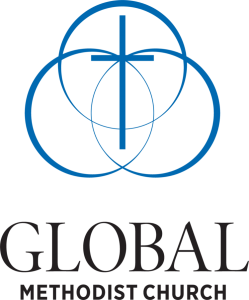 The Transitional Leadership Council, a 17 member team of theologically conservative Methodists, has released information on the Global Methodist Church.
The Transitional Leadership Council, a 17 member team of theologically conservative Methodists, has released information on the Global Methodist Church.
The council said the new church will officially come into existence when a United Methodist General Conference adopts the implementing legislation for the Protocol for Reconciliation and Grace through Separation. Alternatively, if it becomes apparent that the leading bishops, centrists, and progressives who covenanted to support the Protocol no longer do so, then the council will consider bringing the new church into existence without delay. Local United Methodist churches, annual conferences, and central conferences will then be able to join the new denomination.
“The primary mission of the Global Methodist Church will be to make disciples of Jesus Christ who worship passionately, love extravagantly, and witness boldly,” said the Rev. Keith Boyette, who serves as chairman of the Transitional Leadership Council. “Over the past year the council members, and hundreds of people who have informed their work, have faithfully and thoughtfully arrived at this point. They are happy to share with others a wealth of information about a church they believe will be steeped in the life giving confessions of the Christian faith.”
With the announcement of the new church the council authorized the release of a comprehensive and detailed website. It includes the new church’s mission statement, vision, information about its name and logo, a frequently asked questions section, and downloadable versions of the church’s Transitional Book of Doctrines and Discipline in English, French, Korean, Portuguese, and Spanish. The website clearly notes that “the Global Methodist Church is in formation” and will officially launch when the Protocol is approved, or if it becomes apparent that an amicable and orderly separation no longer has the support of a broad coalition of leading bishops, centrists, progressives, and traditionalists. In the case of the latter, the Transitional Leadership Council will consider bringing the new church into existence without delay.
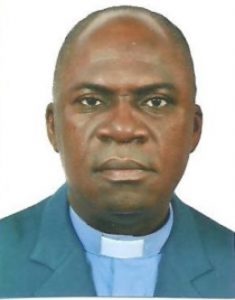
Philippe Adjobi.
“It was a great honor to participate in such exhilarating work,” said the Rev. Philippe Adjobi, a member of the Transitional Leadership Council, a district superintendent in the Cote d’Ivoire Annual Conference and a General Conference delegate. “I believe the Global Methodist Church will fulfill the expectations and aspirations of local churches throughout Africa. They will appreciate focusing on what is essential: testifying to Jesus Christ for the transformation of the world.”
Adjobi and the names of the other 16 members of the council are listed on the Global Methodist Church’s website. They are theologically conservative women and men who come from Africa, Eurasia, the Philippines, and the United States. The list includes laity, clergy and bishops who have been integrally involved in the UM Church for years, and who believe an amicable and orderly separation is the best way forward for a denomination deeply divided and beset by significant challenges.
Theologically conservative United Methodists have made no secret of their efforts to form a new church. In late 2018, the Wesleyan Covenant Association created a Next Steps Working Group to begin drafting its own “Book of Doctrines and Discipline” outlining essential theological confessions and governing structures for a new church’s consideration. It did so in light of the special called 2019 General Conference, where delegates once again addressed issues that have deeply divided the UM Church for decades. The special conference was called to hopefully resolve differences, but many believed it could just as easily reveal the necessity of separation.
The special General Conference proved to be as contentious and divisive as many people anticipated when a Traditional Plan reaffirming the UM Church’s sexual ethics, teachings on marriage, and ordination standards was approved. Progressive and centrist United Methodists in the U.S. denounced the General Conference’s actions and resolved to defy the global body vested with the sole power to speak authoritatively for the UM Church.
Within weeks, small groups of centrist, progressive, and traditionalist UM Church leaders, quietly and often haltingly began having conversations about plans for dividing the denomination. A group convened by the late Bishop John Yambasu of Sierre Leone and guided by the world renown mediator Kenneth Feinberg hammered out the Protocol and its implementing legislation. The 16 member team included leading UM bishops and representatives from the major advocacy groups representing centrists, progressives, and conservatives.
The Protocol team released its plan in early January 2020 and it quickly gained the sometimes hopeful and sometimes grudging support of United Methodists around the world. It appeared headed for likely passage at the denomination’s May 2020 General Conference.
In light of the Protocol a group of theologically conservative UM Church leaders met in Atlanta, Georgia, the first week of March 2020. The group included several traditionalist bishops, evangelical advocacy group leaders, and other clergy and laity who identified as theologically conservative. Over the course of three days the leaders agreed to an expansive vision for a new Methodist church, and then nominated the members of the Transitional Leadership Council, assigning them the task of forming the new church.
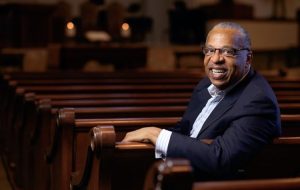
Dr. Bob Hayes.
“I am convinced the Global Methodist Church will be a vibrant, vital expression of Methodism in terms of its teachings and ethics,” said Dr. Bob Hayes, a Transitional Leadership Council member and Bishop in Residence at The Woodlands United Methodist Church in The Woodlands, Texas. “As a fourth generation Methodist I am excited by a fresh wind of the Holy Spirit where I see God doing a new thing! God is creating a church rooted in Scripture and the love of Jesus, and he is calling us to participate with him. We’re not there just yet, but given our vision, our hope, and our perseverance, I’m confident we’ll get there!”
At the time of the Transitional Leadership Council’s formation, no one knew the Covid-19 pandemic would result in the postponement of the UM Church’s 2020 General Conference. Like many other UM Church leaders, the traditionalists who met in Atlanta anticipated the passage of the Protocol in May of last year and intended for the Transitional Leadership Council to form the new church and oversee it until it could hold a convening General Conference.
Despite the postponement of an in-person General Conference, the Transitional Leadership Council has been meeting almost weekly since March 2020. As is evident in its Transitional Book of Doctrines and Discipline, the council has approved the Global Methodist Church’s core confessions of faith, hammered out a transitional governing structure, and adopted the new church’s name and logo. The council has emphasized fidelity to the historic teaching of the Christian faith, and a desire to be a truly global church.

Rev. Kevin Ryoo.
“I believe a good number of ethnic congregations will want to align with the Global Methodist Church,” said the Rev. Kevin Ryoo, a council member and an elder in the Dakotas Annual Conference. “They long for a church which honors the Bible, stays within the traditional mission of Methodism, and keeps local church ministry as a first priority. I know Korean Methodist congregations have a strong passion for evangelism and mission.”
A number of Korean UM pastors reached out to the Wesleyan Covenant Association not long after the association’s formation and have offered their insights and ideas for what a new theologically conservative church might look like.
Boyette, who is the president of the Wesleyan Covenant Association, acknowledged that while the association has played a role in preparing for the new church, many other traditionalist leaders have been critical in the formation of the Global Methodist Church.

Leah Hidde Gregory.
“Traditionalists do not march in lock-step,” said the Rev. Dr. Leah Hidde Gregory, a Transitional Leadership Council member and a district superintendent in the Central Texas Annual Conference. “Some traditionalists have been wary of the WCA, thinking it was moving too fast and others believing it was moving too slow. It took a few meetings before I realized there were only three people from the WCA leadership on our council. It became obvious to me that the group who nominated us wanted to make sure all people who regard themselves as traditionalist, orthodox, conservative, or evangelical were represented on the Transitional Leadership Council.”
Hidde Gregory also noted the misinformation that has swirled around the work of forming a new traditionalist church. “It’s unfortunate that some people have falsely claimed we are opposed to the full inclusion of women as clergy in a new church; nothing could be further from the truth. We make very clear the new church will be fully open to women, and to all ethnicities and races.”
In the “Frequently Asked Questions” section of its website the new church states, “Women, like men, will be called to serve in the Global Methodist Church and will be entitled to serve at all levels.” The section also says, “As a truly global church the denomination will be ethnically and racially diverse and will insist on the equal treatment of all the church’s members.”
Council members believe that if the Protocol’s implementing legislation is adopted, thousands of local churches and clergy in Africa, Eurasia, the Philippines, and the U.S. will want to join the Global Methodist Church. It is widely recognized that clergy and laity in Africa, Eastern Europe and Russia, and in parts of the Philippines are more theologically conservative than their counterparts in the U.S. Although, even in the U.S., a significant percentage of laity identify as theologically conservative, and are part of small, midsize, and large traditionalist local churches.
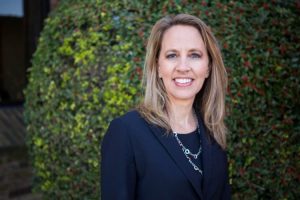
Cara Nicklas.
“I believe Methodism is on the cusp of another Great Awakening,” said Transitional Leadership Council member Cara Nicklas, an attorney and General Conference delegate from the Oklahoma Annual Conference. “The Global Methodist Church is the vehicle by which that will happen because we value a connectional, global church with doctrine and discipline that is not guided by our U.S. culture but is simply focused on bringing people into a deep and intimate relationship with our Lord and Savior Jesus Christ.”
The Transitional Leadership Council will continue to prepare for the official launch of the Global Methodist Church. It meets on almost a weekly basis and regularly receives extensive reports from task force groups dealing with everything from the necessity of a local church’s board of trustees to theological statements regarding the sacraments of baptism and holy communion.
“True to our roots, we’re a patient and methodical people,” said Boyette. “We want to do our very best to help theologically conservative local churches, laity and pastors navigate the transitional period as smoothly as possible. And then we look forward to the Global Methodist Church’s convening General Conference where we hope the duly elected delegates will find what we have done to be helpful. It will be their great task and responsibility to discern God’s will and so help all its local churches and people live fully into the body of Christ.”
To learn more about the Global Methodist Church, click HERE.
The Rev. Walter Fenton is Vice President for Strategic Engagement for the Wesleyan Covenant Association and is an elder in the Greater New Jersey Annual Conference.

 By Walter Fenton –
By Walter Fenton – 





 By Thomas Lambrecht –
By Thomas Lambrecht – The Transitional Leadership Council, a 17 member team of theologically conservative Methodists, has released information on the
The Transitional Leadership Council, a 17 member team of theologically conservative Methodists, has released information on the 



